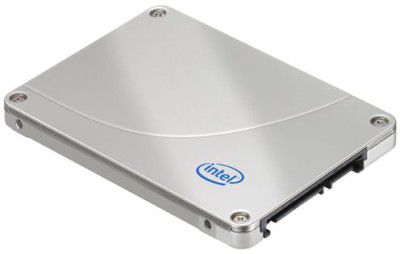From our front-page news:
Earlier today, we posted a story which discussed both the TRIM command and also Intel's new SSD Toolbox software, which is what issues the command for operating systems that don't automatically support the feature. Today, however, Intel has pulled the firmware update due to initial reports that some users who upgrade have run into data corruption issues, which either renders the user's OS inoperable, or in some cases, causes issue with the drive's SMART information.
Intel's official stance is as follows:
"We have been contacted by users with issues with the 34nm Intel SSD firmware upgrade and are investigating. We take all sightings and issues seriously and are working toward resolution. We have temporarily taken down the firmware link while we investigate."

This isn't the first time the 34nm "G2" drives have suffered data corruption issues, which isn't helping the sales to say the least. The company's drives already have far lower sequential write speeds when compared to the competition (in favor of faster random writes, which is arguably much more important), so many users are considering other solutions over Intel's, such as Indilinx-based drives, which also support TRIM and haven't suffered such data corruption bugs in the past.
We're uncertain at the current time when the firmware will be re-posted, but if a bug is indeed found (and we expect that to be the case), then it may take a week or two before the latest version is posted. During our testing, we didn't run into any issues, so like the previous data corruption bug, this one likely has to do with a very specific setting or configuration. If you downloaded the firmware before it was pulled, play it safe and hold off on the upgrade.
Intel's official stance is as follows:
"We have been contacted by users with issues with the 34nm Intel SSD firmware upgrade and are investigating. We take all sightings and issues seriously and are working toward resolution. We have temporarily taken down the firmware link while we investigate."

This isn't the first time the 34nm "G2" drives have suffered data corruption issues, which isn't helping the sales to say the least. The company's drives already have far lower sequential write speeds when compared to the competition (in favor of faster random writes, which is arguably much more important), so many users are considering other solutions over Intel's, such as Indilinx-based drives, which also support TRIM and haven't suffered such data corruption bugs in the past.
We're uncertain at the current time when the firmware will be re-posted, but if a bug is indeed found (and we expect that to be the case), then it may take a week or two before the latest version is posted. During our testing, we didn't run into any issues, so like the previous data corruption bug, this one likely has to do with a very specific setting or configuration. If you downloaded the firmware before it was pulled, play it safe and hold off on the upgrade.
